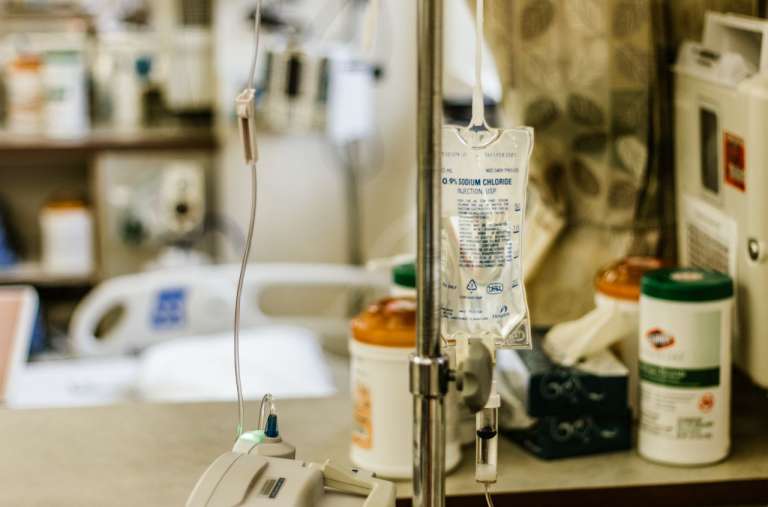An NHS think-tank has raised concerns that hospitals in England are “lurching” from month to month on “emergency” government loans to cover costs of day-to-day operation.
Analysis by the BBC has shown that the amount of money in loans by the government to NHS trusts in England doubled between 2016-17 to 2018-19. In 2016/17, the total amount of money given as loans to hospital trusts was £4.7 billion. This rose to £7.4 billion the year after and has continued to rise. It currently stands at £10.1 billion.
Further figures analysed by the BBC revealed that last year, 122 NHS trusts received financial support from the government.
Borrowing by the King’s College Hospital NHS Foundation Trust doubled from £244m to more than £510m between 2016 and 2019, the equivalent to nearly half of its income over the last year.
The trust, which has been in financial special measures since 2017, spent £136m more on patient care than it was given last year. In its annual accounts, the Trust admitted to being “reliant” on government loans.
The Isle of Wight NHS Trust has struggled with similar problems. Reports have shown that bills from contractors have gone unpaid due to the black hole in the Trust’s finances, which is being plugged with ever-increasing loans, with bosses forced to choose which providers should get the money they are owed first.
Many of these loans also accrue high amounts of interest. Trusts owed £10bn to the government in 2018-19 for “interim revenue support” and paid £185m in interest last year.
According to analysis by the Independent, the average amount of interest paid to government is £205 million a year. The paper also stated that the interest on these government loans can reach six per cent.
Trusts across England have paid more than £607m to Whitehall in interest over the past five years. The amount paid out is rising every year as NHS debts continue to mount.
Although the government states that these payments are funnelled back into the NHS, the interest goes into the general budget of the Department of Health and Social Care (DHSC) rather than being spent directly on NHS services. The Government charges interest of up to 6 per cent on the loans. This summer it emerged that the total debt owed by NHS trusts stands at more than £14bn.
Further research has show that over the last twenty years, NHS Trusts borrowed money over 100 times via private (i.e. non-government) loans. These Private Finance Initiative (PFI) contracts were created to help the health service meet its needs without the government having to raise taxes or take cash away from its other spending plans.
The borrowed money was spent building new hospitals and healthcare centres. However, as these loans not only have to be repaid, they also accrue high amounts of interest. The Institute for Public Policy Research, another think tank, has recently criticised these interest rates as “extortionate”. Its research suggests that despite the original loans totalling £13 billion, the NHS will repay about £80 billion by 2050.
Further analysis found that some NHS trusts are spending a fifth of their budgets on PFI debts.
Sally Gainsbury, senior policy analyst for The Nuffield Trust, said “many hospitals can only survive by lurching from month to month with emergency bailouts from central government”
“While it is true that interest paid to the department can in theory be recycled back out to the NHS, there is by no means a guarantee that it will go back to the individual NHS organisations that paid it.
“That leaves NHS trusts in the greatest financial difficulty unable to plan their future and make spending decisions that best suit their patients.”
Siva Anandaciva, chief analyst for health charity The King’s Fund said some hospitals and providers would be “unable to pay their staff and suppliers on time” without the extra cash brought in by government loans.
“In other words, they would be bankrupt,” he continued.
A Department of Health and Social Care spokesperson said: “We are backing the NHS with the money it needs to provide world-class care in world-class facilities and the Government has already announced that it will no longer use PFI financing for projects. This is just the start of a more strategic approach to capital funding in the NHS, with the development of a new health infrastructure plan focused on local areas where the need is greatest along with a multi-year capital budget.”
At Pryers Solicitors we appreciate that many cases of negligence occur, not through the lack of skills or competency of the health care professional, but more through the pressures applied to them, be it the number of patients they’re expected to see or restrictions on the medication or specialists services available to them. The British people should be allowed to expect top class care, but the NHS cannot be expected this when the budget is so constrained.
Neil Fearn, Chief Executive Officer at Pryers said “The NHS is under tremendous strain to provide consistent and high quality care to patients. It it is unfair to ask them to do this alongside tight budgetary pressures which leads to Trusts managing millions of pounds of debt this will inevitably impact upon patient care. All organisations must operate within budgetary constraints, but it seems that it is almost impossible for the NHS to succeed in achieving all of its goals.”
If you think you have received substandard care from the NHS, speak to our experts to find out if you can make a no win no fee compensation claim.





